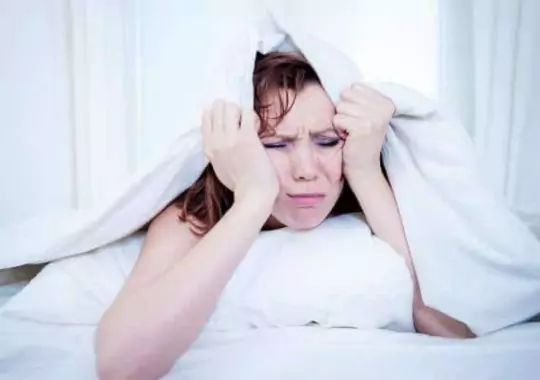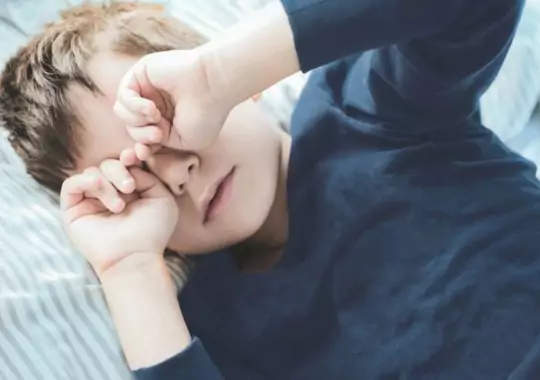ADHD, or attention deficit hyperactivity disorder, affects millions of people worldwide, impacting their daily lives in various ways. One crucial aspect that often gets overlooked is the relationship between ADHD and sleep. In this blog post, we delve into the intricacies of how ADHD can affect sleep patterns and quality, along with practical tips to improve sleep for individuals with ADHD.
As Amazon affiliates we may earn a commission if you purchase a product at no cost to you.
Understanding ADHD and Sleep
ADHD is characterized by symptoms such as inattentiveness, hyperactivity, and impulsivity, which can persist from childhood into adulthood. These symptoms not only impact daily functioning but also influence sleep patterns. Research suggests that between 25% to 50% of individuals with ADHD experience difficulties with sleep, including trouble falling asleep, shorter sleep times, and a higher risk of developing sleep disorders.
Studies and research have indicated that a significant proportion of individuals with ADHD, estimated to be between 25% to 50%, experience difficulties with sleep. These sleep-related challenges encompass a spectrum of issues, including trouble falling asleep, experiencing shorter sleep durations than recommended, and an increased vulnerability to developing various sleep disorders.
The link between ADHD and sleep disruptions is multifaceted. The core symptoms of ADHD, such as inattentiveness and hyperactivity, can directly interfere with the ability to initiate and maintain sleep. Moreover, the neurological mechanisms underlying ADHD may also impact the regulation of sleep-wake cycles, leading to irregularities in sleep patterns.
Furthermore, the chronic stress and cognitive arousal associated with ADHD can contribute to heightened arousal levels at night, making it challenging for individuals to achieve restful and uninterrupted sleep. This heightened arousal may manifest as racing thoughts, increased physical restlessness, or difficulty quieting the mind before bedtime.
Additionally, the presence of comorbid conditions often seen in individuals with ADHD, such as anxiety and mood disorders, can further exacerbate sleep difficulties. These factors collectively contribute to the complex relationship between ADHD and sleep disturbances, highlighting the need for targeted interventions and strategies to promote better sleep quality in this population.

Types of ADHD and Sleep Patterns
The type of ADHD a person has can indeed have a significant impact on their sleep patterns, creating a diverse range of experiences among individuals with ADHD. Let's explore how different types of ADHD can influence sleep in distinct ways:
Inattentive Type ADHD: Individuals with the inattentive type of ADHD may exhibit symptoms such as difficulty sustaining attention, being easily distracted, and appearing forgetful or disorganized. When it comes to sleep patterns, these individuals may tend to stay up later into the night. Their propensity for late-night activities or difficulties winding down before bedtime can result in delayed sleep onset and a shift towards a later bedtime schedule.
Hyperactive-Impulsive Type ADHD: On the other hand, individuals with the hyperactive-impulsive type of ADHD often experience symptoms like restlessness, impulsivity, and a high level of physical activity. This hyperactivity and heightened arousal can manifest as difficulties in calming down and falling asleep. These individuals may struggle with initiating sleep, leading to longer periods of time spent awake in bed before finally being able to sleep.
Combined Type ADHD: Combining symptoms of both inattentiveness and hyperactivity-impulsivity, the combined type of ADHD presents a unique set of challenges concerning sleep. These individuals may face a double-edged sword where they experience difficulties both in staying up late due to inattentive tendencies and struggling to fall asleep due to hyperactivity and impulsivity. This combination can lead to a disruption in sleep continuity, resulting in poor sleep quality and overall sleep disturbances.
The interplay between ADHD symptoms and sleep patterns is complex and multifaceted. Factors such as individual differences in symptom severity, coexisting conditions, lifestyle habits, and environmental influences further contribute to the variability in sleep experiences among individuals with ADHD.
Understanding these nuances is crucial for developing targeted interventions and strategies to address sleep difficulties in individuals with different types of ADHD. By tailoring approaches to suit specific sleep patterns and challenges associated with each ADHD subtype, it becomes possible to enhance sleep quality and overall well-being in this population.

The Chicken or the Egg Dilemma
The relationship between ADHD and sleep disorders often presents a challenging dilemma for researchers and healthcare professionals, commonly referred to as the "chicken or the egg" dilemma. This dilemma revolves around the question of whether ADHD causes sleep problems or if sleep disturbances contribute to the development or exacerbation of ADHD symptoms. Let's delve deeper into this complex issue:
ADHD Causing Sleep Problems: Some evidence suggests that ADHD-related factors, such as impaired brain circuits involved in attention regulation and hyperactivity, can directly contribute to sleep difficulties. For example, individuals with ADHD may experience heightened arousal levels, racing thoughts, or difficulties winding down at night, making it challenging to initiate and maintain sleep. Moreover, disruptions in neurotransmitter systems implicated in ADHD, such as dopamine and norepinephrine, may also play a role in sleep-wake regulation.
Sleep Problems Contributing to ADHD Symptoms: On the other hand, sleep disturbances themselves can impact cognitive functioning, mood regulation, and attentional processes, all of which are core aspects of ADHD. Chronic sleep deprivation or poor sleep quality can lead to daytime sleepiness, irritability, difficulties in concentration, and impulsivity—symptoms that overlap with those seen in ADHD. Additionally, sleep disruptions can affect emotional regulation and executive functions, further complicating the clinical picture.
Despite these insights, the exact nature of the relationship between ADHD and sleep disorders remains elusive and subject to ongoing research and debate. Factors such as genetic predispositions, environmental influences, comorbid conditions (e.g., anxiety, depression), and lifestyle habits all contribute to the complexity of this relationship.
It's important for healthcare providers to consider both ADHD and sleep disturbances comprehensively when evaluating and managing individuals presenting with symptoms from either domain. A holistic approach that addresses underlying factors contributing to both ADHD and sleep problems can lead to more effective treatment strategies and improved overall well-being for individuals dealing with these challenges.
Recommended Article

Frequently Asked Questions FAQs
Does ADHD affect sleep patterns?
Yes, ADHD can impact sleep patterns. Individuals with ADHD may experience difficulties with falling asleep, staying asleep, or having restful sleep. Hyperactivity, racing thoughts, and medication side effects can contribute to sleep disturbances in ADHD.
How does lack of sleep affect ADHD symptoms?
Lack of sleep can worsen ADHD symptoms, including inattention, impulsivity, and hyperactivity. Sleep deprivation can lead to increased irritability, decreased focus, and reduced cognitive functioning, making it more challenging to manage ADHD symptoms effectively.
What strategies can help improve sleep for individuals with ADHD?
Several strategies can promote better sleep for individuals with ADHD. These include establishing a consistent sleep schedule, creating a relaxing bedtime routine, creating a sleep-friendly environment, avoiding stimulating activities before bed, and seeking medical advice if sleep difficulties persist.
Conclusion
Navigating the relationship between ADHD and sleep requires a nuanced understanding of how ADHD symptoms and sleep patterns interact. By implementing lifestyle changes and seeking appropriate interventions, individuals with ADHD can take control of their sleep health and improve their overall well-being.










